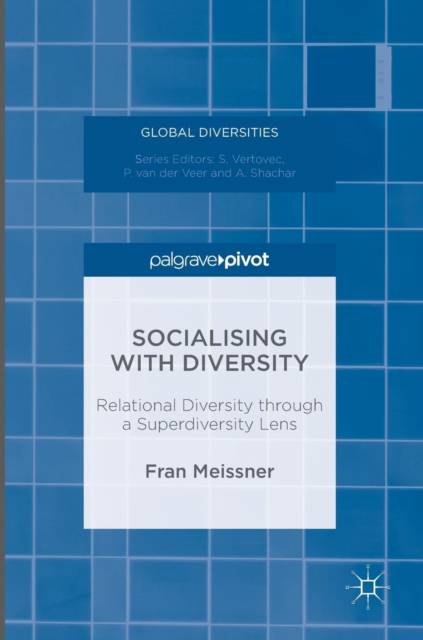
- Afhalen na 1 uur in een winkel met voorraad
- Gratis thuislevering in België vanaf € 30
- Ruim aanbod met 7 miljoen producten
- Afhalen na 1 uur in een winkel met voorraad
- Gratis thuislevering in België vanaf € 30
- Ruim aanbod met 7 miljoen producten
Zoeken
€ 83,95
+ 167 punten
Omschrijving
This book analyses post-migration social networks via the notion of superdiversity. Approaching diversity as relational and complexly configured through multiple migration-related differentiations, it challenges us to rethink how we talk about and classify migrant networks. Based on research in two cities of migration - London and Toronto - the author investigates how we can use a superdiversity lens to discuss migrant networks in urban contexts. Focusing on the personal networks of Pacific Islanders and New Zealand Māori, she sheds light on the sociality practices of relatively small groups of migrants, the members of which are nonetheless differentiated in terms of superdiversity. Using cluster analytic pattern detection to explore alternative ways of describing migrant networks, she brings into play multifaceted descriptions such as city-cohort, long-term resident, superdiverse and migrant-peer networks. Visualising complex patterns of diversity, thisbook therefore contributes to theoretical debates by proposing a relational understanding of diversity rather than one based on the enumeration of (ethnic) categories. This book will appeal to sociologists, political scientists and all scholars interested in urban diversity, migration and diasporas.
Specificaties
Betrokkenen
- Auteur(s):
- Uitgeverij:
Inhoud
- Aantal bladzijden:
- 130
- Taal:
- Engels
- Reeks:
Eigenschappen
- Productcode (EAN):
- 9781137474384
- Verschijningsdatum:
- 15/12/2015
- Uitvoering:
- Hardcover
- Formaat:
- Genaaid
- Afmetingen:
- 148 mm x 210 mm
- Gewicht:
- 326 g

Alleen bij Standaard Boekhandel
+ 167 punten op je klantenkaart van Standaard Boekhandel
Beoordelingen
We publiceren alleen reviews die voldoen aan de voorwaarden voor reviews. Bekijk onze voorwaarden voor reviews.











